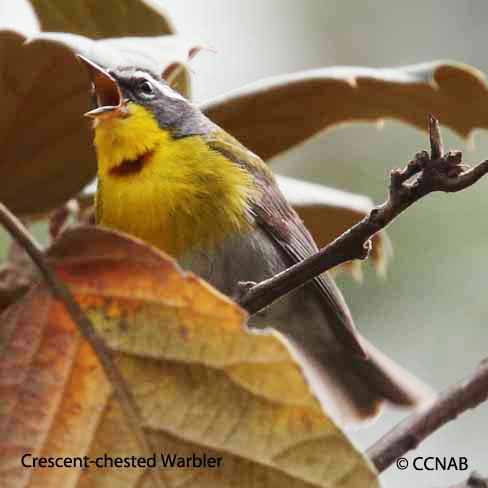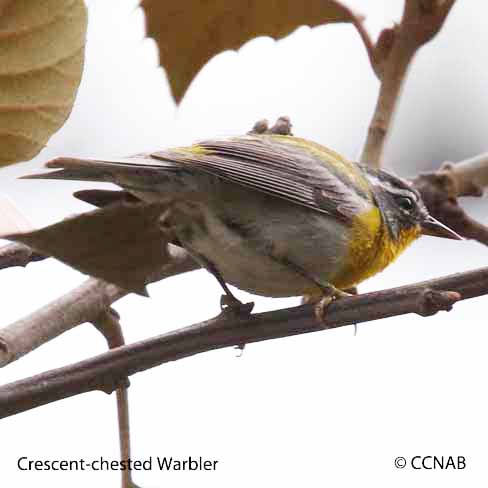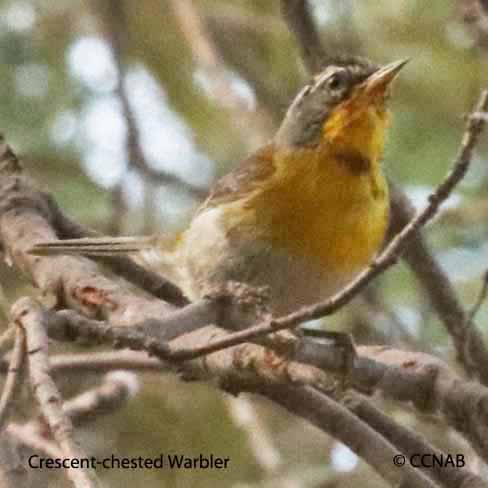North American Bird Search Box
This search box can be used to find bird species using bird's english, french or latin name, or to identify bird by its 4 letter Alpha Code
Field Guide for all the Birds of North America
Crescent-chested Warbler
4 Letter (english names) Alpha Code: CCWA (4)
Paruline à croissant
Oreothlypis superciliosa
Information, images and range maps on over 1,000 birds of North America, including sub-species, vagrants, introduced birds and possibilities
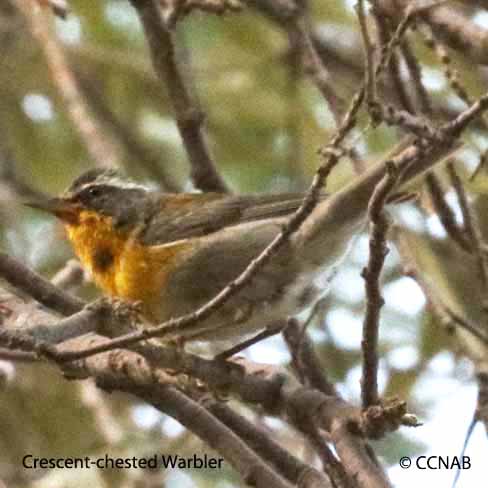
Species: The Crescent-chested Warbler (Dendroica castanea) can be found in the mountains of Mexico and Central America. It has some colour similarities to the Northern Parula and the Tropical Parula. It is seen mostly on the slopes of the mountains and it prefers a deciduous forest. Its population appears to be stable, and it associates with other passerines in flocks during the winter months, to forage for food. It is not endangered.
Distinctions: Both male and the female have bold white superciliums. The male has a gray crown, nape and tail, grayish black wings with no wingbars. Olive green back, bright yellow throat, breast and flanks, white lower body and undertail coverts. crescent at the base of its eye and the bottom side of its lower mandible is yellow. Female and juvenile have the same appearance but in duller colours.
Voice: Chipping call, buzzy notes, repeated over.
Nesting: Three to five white coloured eggs. Builds its nest in trees. The nest is composed of leaves, twigs, moss and it is lined with fine grasses and hair.
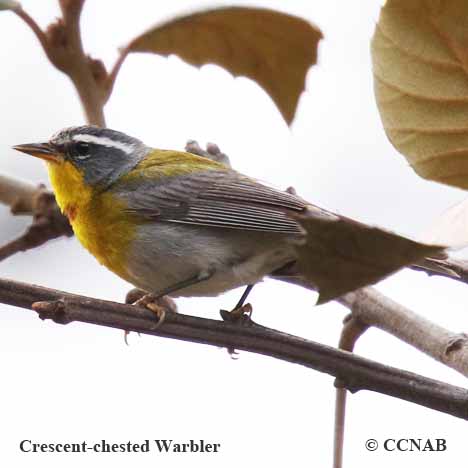
Life, Habitat & Pictures of North American Warblers
| B L | W W | W | Family | Latin Name |
|---|---|---|---|---|
| 4.3" 11cm | 7" 17.8cm | 0.3oz 8.5g | Parulidae | Oreothlypis superciliosa |
- Summer
- Year Around
- Winter
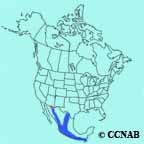
Distribution: Found along the eastern and western mountain slopes in northern Mexico, into Central America. The range map indicates this warbler keeps the same territory 12 months of the year. It is not reported in the Yucatan Peninsula regions. On just a few occasions, it has been identified in Arizona and recognized as a vagrant and a rare visitor. It has been reported seen but not confirmed in Texas, north of the Rio Grand River.
Reference to Other Bird Site:
ABA - American Birding Association This site represents an organization that maintains official records of all birds species that have been proven to have been seen inside the perimeters of the North American Continent and the surrounding bodies of water. Regular revised versions are posted to keep the bird list current at all times. This is the list used by all serious birders over their lifetime. You may be aware of the movie called the "Big Year". It was with this list that all the competing birders used in an attempt to set a new record as to how many bird species that could be seen by an individual birder in one calendar year.
